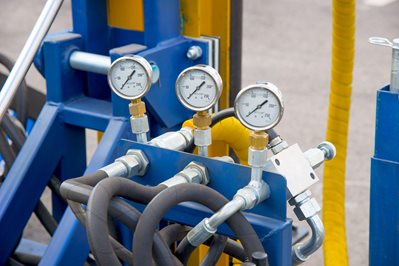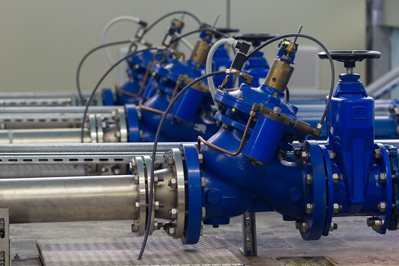When to Change Hydraulic Fluid in Mobile and Industrial Hydraulic Machinery
 Ensuring hydraulic machinery and equipment functions correctly requires knowing when to change the hydraulic fluid. Unfortunately, when oil prices soar, changing the fluid in your hydraulic machinery and equipment is often put off as long as possible.
Ensuring hydraulic machinery and equipment functions correctly requires knowing when to change the hydraulic fluid. Unfortunately, when oil prices soar, changing the fluid in your hydraulic machinery and equipment is often put off as long as possible.
However, taking this approach and letting costs get in the way can lead to serious problems with your machinery and equipment. As a result, you could pay more for replacement hydraulic parts and components than you would if you had just purchased the hydraulic fluid, regardless of its current price.
In addition, it is essential to understand when to change hydraulic fluid in equipment and machinery to prevent damage to the internal parts and components.
Oil Degradation
No matter what type of hydraulic oil you use, it will break down over time. Your equipment and machinery documentation should give you an estimated lifespan of oil in the system. However, equipment and machinery that undergoes heavy usage will require more frequent fluid changes. Ideally, you should keep track of the number of hours the equipment and machinery is operating and use this as a guide to determine when to change the fluid.
Loss of Oil Additives
Extra additives mixed in with fresh hydraulic fluid also break down over time, but at a different rate than oil. Some additives last longer than the oil’s lifespan, while others will wear out quickly with continuous usage. Your safest bet is to test a fluid sample and look for any deficiencies. Eventually, you’ll get a feel for when you need more additives.
Temperature Changes

Your hydraulic equipment and machinery will vary in performance depending on the season, especially mobile equipment. Hydraulic fluid is sensitive to
temperature changes. Letting your machinery and equipment sit idle in a cold environment will have consequences.
In addition, thick oil is difficult for the machine to pump, which could result in leaks, damage, or destruction of internal components. Running your machinery and equipment periodically is best, and allowing it to come up to operating temperature before using the hydraulics can help offset temperature changes.
Alternatively, you could find an oil with the right viscosity index to suit your climate. Higher viscosity index values mean the oil doesn’t change viscosity easily. That metric alone isn’t always enough information to tell you how the fluid performs at low temperatures, even if its pour point is -30 degrees Celsius.
White House Products, Ltd. Is Here to Help
Deciding when to change hydraulic fluid in machinery and equipment requires careful monitoring and keeping up with your maintenance. If you have questions about what type of fluid is best for your machinery and equipment, or if you need replacement hydraulic parts, please contact White House Products, Ltd. at +44 (0) 1475 742500.
Back to blog posts